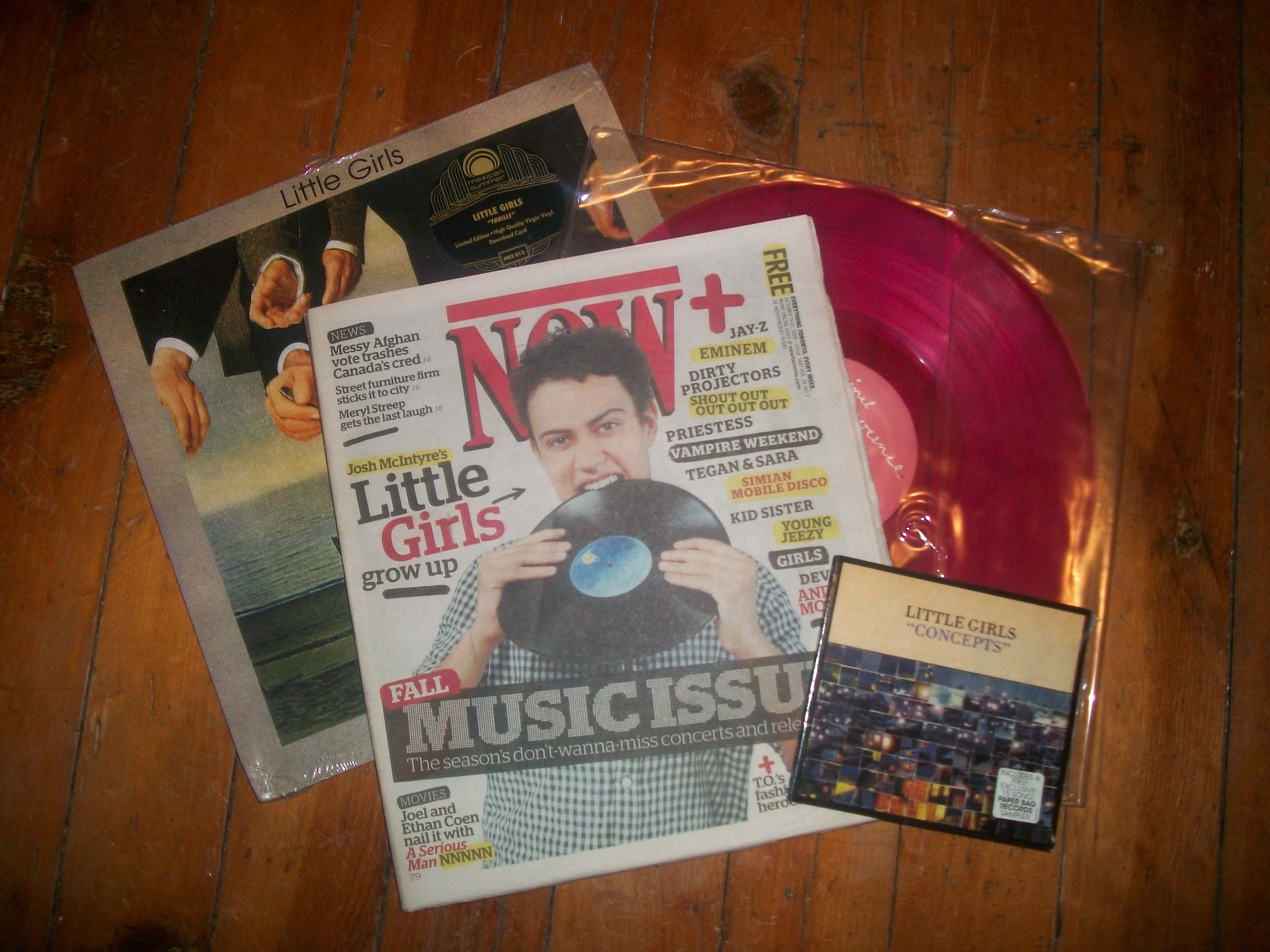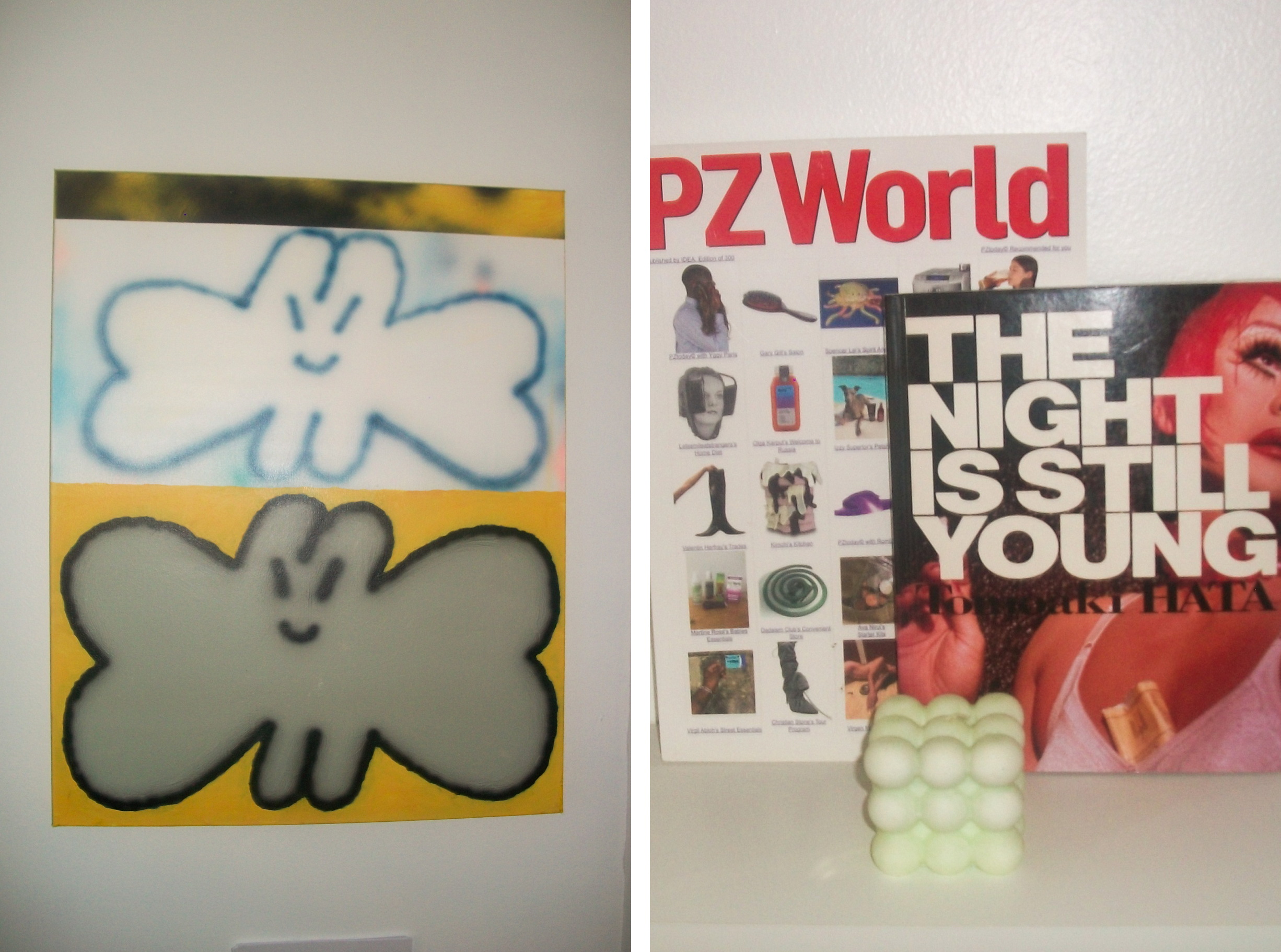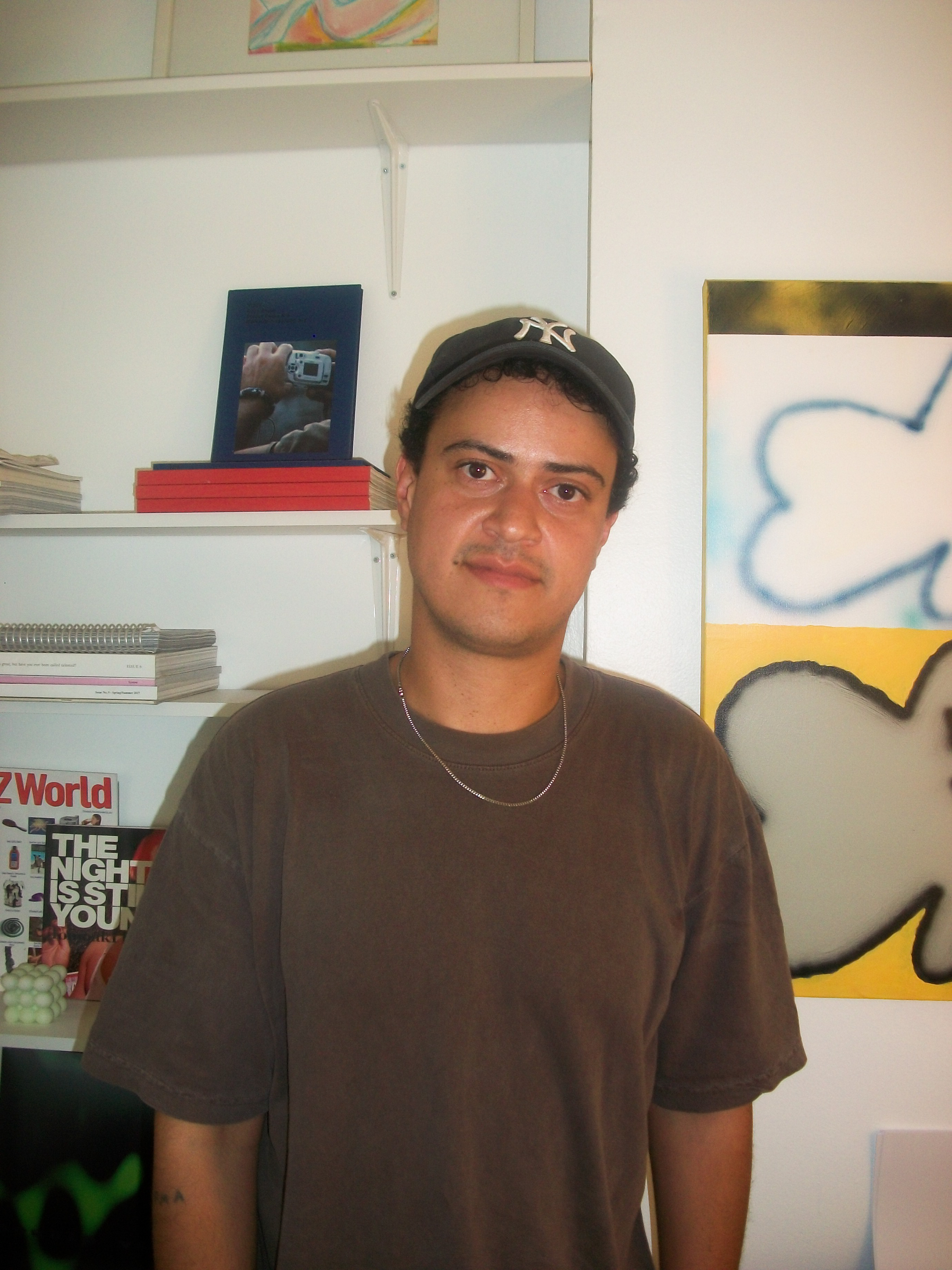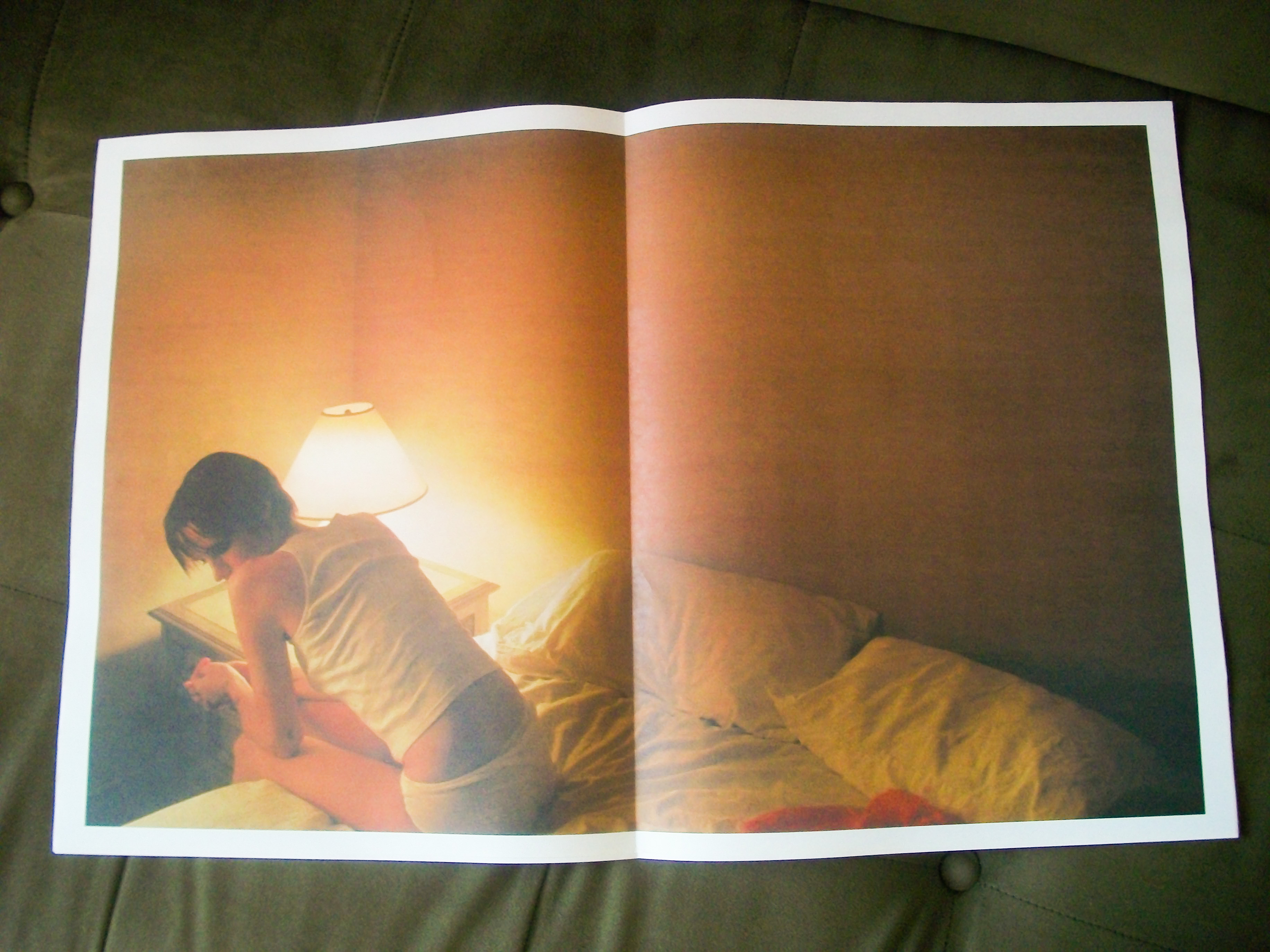Josh McIntyre is far beyond just one sound. AKA Prince Josh, the producer, songwriter and DJ has consistently kept an experimental essence throughout his work. From collaborations and duos such as Prince Innocence, Baby Blue and most recently Thermal. Unable to sit still, McIntyre reminds us that you don’t have to produce one singular sound to your name. You can explore everything.
I know this is a very vague question to start, but when was the moment you started getting into your music career?
— So, I had a funny career when I was younger at 18 [years-old]. I was out of high school, took a year off and told myself “you’re just going to work and make music.” I had this project called ‘Little Girls’, which I didn’t think was supposed to be anything. It was the MySpace days in 2009. I made these garage rock anonymous tracks, put them on MySpace and then it randomly blew up. I was like “what is going on?” and then soon I had a record deal all of a sudden. I did some work with the record label Captured Tracks…I wrote all the music, put a band together and toured. By the time I was 22-years-old, I was burned out. I just thought, I can’t do this, I don’t want to be a frontman, I don’t want to be the singer of a band. I just want to be in the background. That’s kind of how it all started, and then a year later I started Prince Innocence.
How did Prince Innocence come to be?
— [Talvi Faustmann] and I went to high school together, we started dating years after and were living in Montreal at the time. She was at McGill, I was making music and then one day I asked her “Hey, you want to try singing these songs?” All of a sudden, that was the project I was in up until now, really. It started out synthy disco-y and then evolved into more experimental music.
I see. So, what do you classify as experimental?
— It’s always funny, because the things that I like or listen to are always different from the things I make, even though in my mind the parallel exists. I was listening to a lot of this label Fade to Mind, out there DJs like Total Freedom and artists like Kelela who were coming up at the time. I I was so obsessed with just beats that were weird, different and electronic but not necessarily synths. All the music I’ve done changes all the time and I’m okay with that. No disrespect to anyone who sticks to one thing, but I remember with Dev Hynes, somebody once criticising him on Twitter saying “he’s just a chameleon who’s changing genres with whatever's cool.” Sure, maybe you can make that argument but I was like no, he’s changed his style of music as he’s progressed because he wants to keep evolving. Nobody wants to just be one thing.
I agree. With Dev Hynes, they change constantly but are always redefining a genre and introducing a new style of it.
— It’s just unfair. Do you want artists to be making the same thing over and over? No, that’s so boring to me. I feel like, I don’t know, if you’re creating any kind of art or music, there’s always going to be a large percentage of it that’s for you. Not in a selfish way. Of course, it’s a social art form, it’s for the people to enjoy, listen to and experience. But, at the same time you can tell when someone’s excited about the things they’re making. It shows, it comes through. You can tell when you look at legacy artists who've just burned out and thinking “oh, I just have to make another dance record.” You can tell, you just lose interest, it's no longer exciting.

I read this article about Cory Kennedy being super young and famous, and then Alex G, where he talked about making it big at 17-years-old. Do you think burnout messed with you in any way? I feel like we forget that 18/19-years-old is still really young.
— There’s a lot of things that I did, or decisions I made for my career at that time that if I had proper guidance, or non-shady industry people around me, giving me good advice then maybe I would have kept playing with [the band Little Girls] longer. But, I just A. had awful people around me, and B. made decisions that a 19-year-old would make. It definitely affected me in the sense that after that era ended, I needed to reevaluate what it was I actually wanted to do and how to go about doing it. They were throwing me on tours and you can’t go 30 days in a row, you need days off. It was a weird competition and they’d say when we were at South by Southwest (SXSW) “DIVES playing 18 shows in five days, you’re playing 12 shows in five days.” It was like sports. It pretty much ended in SXSW because I literally burned out and had an obvious breakdown. I just thought, I don’t know what I’m doing here and I just want to go home.
Now I feel like there’s more of a sense of giving the artists time. In a way, it seems like you’re “cooler” if you take many years or so to produce work.
— That’s a whole other thing, there’s a pendulum on both sides. I think balance is obviously important. You have someone like Frank Ocean who is the person that can afford the luxury of time. But, it’s expensive to be an artist, so there is this small level of, not necessarily hustler mentality, but you’re going to have to keep working. Obviously, no one should be cranking out music so that they try to maintain this level of status. At the same time, we also can’t not create or not push ourselves to try to.
As we’ve talked about before, everyone in this city is connected. How did your friendship with Young Teesh happen? What’s the story there?
— That was probably 2015, I had met Teesh and the whole crew. They’re the people you’d see walking down the street and be like “I want to know what they’re all about.” Somehow, I ended up meeting them at a party and I totally hit it off with two of them in particular; LA Timpa and Teesh. Timpa was just a funny character, he was describing this music to me at a party and the way he described I didn’t even know what this could possibly be. You’d have to come over and show it to me. So he came over, he was playing me all this music and it was insane. I loved it. He sent me 100 songs, and we listened to 100 songs in the living room. I said, “let’s put together an EP with five songs and let me help you put it out and do PR.” Let me do anything that I can to help just from my contacts that I’d had. I’d never managed anyone before in my life.
So LA Timpa was the first person you thought about managing?
— First and only. We’re still the best of friends and he’s in Berlin now, but we just started to apply some things that I learned throughout the years. Sending music to publications, developing relationships with writers. I was pushing a lot of his music, I was managing him. We got some crazy press from i-D, Fader and Pitchfork. And then, you know, nothing bad ever happened. I just got him to where I could get him and wanted to focus on my own stuff. He’s doing great! Around the exact same time, I met Teesh. I was having these dual sessions with both of them. Timpa would come over one day, and the next day would be Teesh who asked me “can you teach me how to DJ?” We’d sit down in the living room, set up the DJ controller and beat match. The part I wanted to mention before, the second time I met the whole crew, there was music playing in their apartment. It was an insanely incredible mix of music, who’s playing this? It was Teesh. One day, when I was DJing at the Beaver occasionally, I got a message from one of the bookers asking if I wanted to fill in on a Wednesday. I called Teesh and said “tonights the night, let’s just go DJ.”

Was that her first time?
— Yeah. We blasted it out on Instagram, I wonder if it was even called Baby Blue then. I feel like we just made up that name on the spot. All these people came… I remember posting the cockiest, funniest photo being like “you’re hearing it here first, best DJ here in the city.” She is incredibly sick, way better than I am. I’m just so happy for her.
From then to now, what’s been going on? I know with Thermal, you recently released ‘Peachy’ with Lauren Armstrong.
— During COVID, the funny thing was I was trying to make music that just felt void to the exact time and place. Everything I was making was such a reaction; either making the hardest dance music because I wanted to get out and dance, or making the most depressing ambient music because that was what my life was. During [lockdowns] I feel like we all revisited things from our past, music that inspired us a lot. I was listening back to Broken Social Scene, or something along the lines of that. I hadn’t played guitar in years…started to mess around just to kill time, but wasn’t writing music. I then started writing guitar music for fun, not really thinking anything of it. Lauren started singing on it and it was the two of us just messing around for a while. As we kind of got out of that, we took it to the studio. So now we’ve put together the band, we’re recording a record with Matt Tomasi. At the same time, I have a Prince Josh album coming in as well. It goes back to the point that I can’t sit still.
I guess, going back to the very beginning, how would you describe your evolution of sound?
— Honestly, it feels full circle, in a weird way. It was a full circle moment where…the music sonically falls into a similar world of fuzzy guitar indie nonsense. I’ve put together this amalgamation of all my influences and found ways. I’ve learnt it's okay to have separate things, musically. At one point I thought now that I’m back into guitar, let me add some dance stuff. Wait, no, it’s okay to have separate things. Everything that I’ve been into over the last 10-15 years, I don’t have to put it into one thing. You know, everything of me into one song. No, it’s about showing as much of myself in the music but not oversaturated or forced.
They can be separate things, but it’s hard to not have the urge to connect everything together. Things don’t have to connect.
— No, they don’t have to connect on a surface level, they can connect on a much more different level where you can understand them from the same person and perspective. I always love when I find artists that…have a sense of discovery. It’s like, you find an artist and love all of these albums. Then, oh wait, they also have this weird, ambient piece that’s sick and cool, you know?
Was there any influence in your childhood? Did your parents introduce you to specific music?
— My moms from Trinidad, so she listens to a lot of Soca and Calypso, which I will admit was not something I was into as a kid. As a kid, you always rebelled against what’s played in your household. Then my dad was more into folky kind of guitar and jazz music. When I was young, I was really into metal, I had long hair and black metal t-shirts. The funny thing is when I started DJing with Teesh, who’s also Trinadadian, we’d always joke that “wait no, that’s actually sick.” I was probably 26-years-old when I realised that. It has its time and place and is good in the right context.

Looking at your solo work under Prince Josh, do you ever feel like that’s an alter ego of yourself? The way Gaga has Jo.
— No, because initially I had called it Healings for a short period of time when I was working on the first album. I was DJing as Prince Josh and planning to release an album under Healings. Before we finalised the album, I realised I didn’t want this to be an alter ego, I wanted this to just be me. I want to keep it as concise as possible. This is at very least just me, the most honest me, this is what I’m into. I’m not trying to hide behind things. This was also because with Little Girls, that project was kind of anonymous at the beginning. All the press photos were mysterious, you didn’t know it was me. With Prince Innocence, I was in the background, kind of just lurking in the shadows. With [Prince Josh], this is just me coming forward as just me, there’s no point of hiding behind different names and aesthetics.
That’s true. But, how did you keep it anonymous on stage?
— [Little Girls] was very much in the blog-era, so the anonymity thing didn’t last that long. Once we played live, it was yeah I’m the guy. We’d scratch my face out, then scan them for press photos. I did that for six months and then we blew up stupidly fast. At one point, I did an interview for DAZED and sent them the non scratched photo, then that was in the magazine. Then, I was on the cover of NOW Magazine, and it’s literally the worst photo of all time. Long story short, we did the shoot and it was all like “yeah, I’m a cool guy in a band.” Then we took these really goofy photos. Once Thursday came, I saw and oh my god, they used the goofy picture.
What would be the future for you? Are you mainly focusing on what’s happening now?
— I’m always focusing on what’s happening right now. My thing is I always just stay inspired and keep making things. I’d probably release anything solo at this point as Prince Josh, unless I was getting into orchestral music, then it's Josh McIntyre. I’ve been producing, I did the new Sydanie track and have some other stuff on her album coming out. I’m happy to be making music and producing whatever I want. I think at this point, it’s not that I don’t care anymore but if someone likes it, that’s sick, if they don’t, that’s also fine. I really cared when I was younger, I really cared about what people thought of me. I wanted to be accepted because I always felt like an outsider. There were no people of colour in the indie rock scene, especially back then. I would do these interviews and talk about rap music, and then [the interviewer] would say “no, talk about Joy Division.” All these crazy things that I was trying to get across wouldn’t land because journalists would always just want this specific thing of what they thought it was.
With some journalists now, and then, I find that there’s still a mindset that everything needs to be directed in a certain narrative.
— It took a long time, but it took longer than it maybe should have. But, because of all the crazy stuff that happened when I was younger I told myself I didn’t want to do interviews, I don’t want to talk to people. Which is ironic that now I have a podcast. That also came with the idea of “no, fuck it, I’m just going to talk because I’m not afraid.”
It’s great to have this recorded history of people writing about you, but doing it on your own accord is really different. How did your podcast, Cold Pod, get its start?
— The start was me and Austin [Hutchings]. At the time, all the podcasts here were narrative based or some sort of story episodes. NPR or CBC type podcasts. Where’s one [podcast] that’s talking about the city? There’s all these different pockets of cool things and…no one wanted to champion their own work. I was getting tired of [seeing] that. I also weirdly was in this negative “Toronto sucks” mindset, but it doesn’t. That’s how it all started. I wanted to talk about what I like and don’t like and put a spotlight on all the great things that are happening here. We can have DJs, guys in bands, painters, photographers…there’s just so much that I’m interested in, so, I’m trying to get as many different people of different mediums.

Do you pick people that you’ve met through the industry or who are somewhat friends?
— Yeah, for the most part. I mean, I do most of the picking of guests. We always joke that Austin has had two guests. But that’s also not entirely true, we discuss the guests. It started out, and pretty much still is, a lot of my friends or people I know. We’ve been trying to branch out and find different people that we don’t know. Actually, we’ve had a few recently where we’re meeting someone for the first time and then becoming friends with them. Now we also have press people reaching out…so we’re getting into that stage of things.
How do you feel about that?
— Conflicted. On the one hand, it’s amazing because we don’t have to worry about scheduling and trying to figure out all this stuff. But, on the other hand, I don't want it to get too corporate. Even for tonight, we’re doing a fun one with Lauren, just back to basics, talking about dumb stuff for fun. She was joking earlier that there are too many men promoting their projects on the podcast these days!
I do like the solo ones, those are funny and it’s more open.
— You know, I never want to be just a stop on a press tour. We’re just happy to take some pressure off.
Let’s go back a little to your music. This is a little cliche, but who are your influences in the city and outside?
— For DJing it’s Total Freedom. He, in my mind, is the best DJ of all time. Even when Chippy was here, we had a 15 minute conversation about how much we love them. [Total Freedom] was the last time I heard something completely new and a new approach to something. I listened to him and thought, “how are you connecting the dots of breakbeats and rave music with weird SoundCloud rips of Brazilian music?” It’s popular now but back in 2016, I’d never heard anything like this in my life. I think they go by Big Gay Idiot DJ now. I hate to say it but, Dean Blunt. They’re someone I listened to for so long to a point we actually made music together a long time ago.
How did that happen?
— MySpace. They were Hype Williams at the time. I was like, this is some cool, weird collage-y Lo Fi music, let’s collaborate on something. It never ended up coming out. Actually, this is my version of the guy who couldn’t remember his password for his Bitcoin account. He has $20 million because he bought Bitcoin in 2015, and he’s tried nine attempts out of ten with his password.
So, do you have this album on a separate computer that you can’t access?
— It’s on a computer that’s at my parents house. It’s on a broken laptop. Wait, no, I’m wrong. It’s in the MySpace inbox, that’s only accessible through my hotmail account.
And you can’t access your hotmail. I feel like you could find a way.
— Believe me, I've tried. Maybe I'll try again, but I also want to let that go.
– East Room is a shared workspace company providing design-forward office solutions, authentic programming and a diverse community to established companies and enterprising freelancers. We explore art, design, music, and entrepreneurship. Visit our news & stories page to read more.